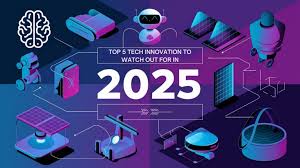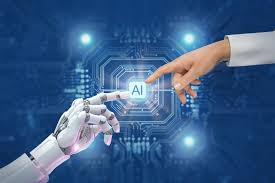Introduction:
In the ever-evolving landscape of technology, quantum computing stands out as a groundbreaking frontier. Unlike classical computers that use bits as the smallest unit of information, quantum computers utilize quantum bits, or qubits. This revolutionary approach promises to solve complex problems far beyond the capabilities of today’s most powerful supercomputers.
What is Quantum Computing?
It harnesses the principles of quantum mechanics, a branch of physics that deals with phenomena at atomic and subatomic levels. The two fundamental properties that give quantum computing its power are superposition and entanglement.
Superposition:
allows qubits to exist in multiple states simultaneously, unlike classical bits that are either 0 or 1. This enables one to perform various calculations at once.
Entanglement :
is a phenomenon where qubits become interconnected, such that the state of one qubit instantly influences the state of another, regardless of the distance between them. This interconnectedness allows quantum computers to solve problems with unprecedented speed and efficiency.
How Quantum Computing Differs from Classical Computing:
1. Processing Power:
Quantum computers can process vast amounts of data simultaneously due to superposition. This makes them exponentially faster for certain tasks, such as factoring large numbers or simulating molecular structures.
2. Problem-Solving Capabilities:
Classical computers struggle with problems involving large datasets or complex simulations. Quantum computers excel in these areas, offering solutions to previously considered unsolvable problems.
3. Error Correction:
It faces unique challenges, such as quantum decoherence and error rates. However, advancements in quantum error correction are steadily improving the reliability of quantum systems.
Applications of Quantum Computing:
1. Cryptography:
It poses a threat to current encryption methods. However, it also offers the potential for quantum cryptography, which could create virtually unbreakable encryption.
2. Drug Discovery:
Pharmaceutical companies can use quantum computing to simulate molecular interactions at an atomic level, speeding up drug discovery and reducing costs.
3. Financial Modeling:
It can process complex financial models and optimize investment portfolios much faster than classical computers, providing a significant edge in financial services.
4. Artificial Intelligence and Machine Learning:
It can enhance machine learning algorithms, enabling more accurate predictions and faster data processing.
Challenges and Future Prospects:
1. Technological Barriers:
It require extremely low temperatures and are highly sensitive to environmental disturbances. Overcoming these technical challenges is crucial for the widespread adoption of quantum computing.
2. Ethical Considerations:
The immense power of quantum computing raises ethical concerns, particularly in areas like privacy and security. It is essential to establish regulations to ensure responsible use of this technology.
3. Economic Impact:
It could disrupt various industries, leading to both opportunities and challenges in the job market. Preparing for this shift is vital for businesses and governments alike.
Conclusion:
Quantum computing represents the next leap in computational power, with the potential to transform industries and solve complex problems that were previously out of reach. While challenges remain, the ongoing advancements in quantum technology hold promise for a future where quantum computing becomes an integral part of our daily lives.
As we stand on the cusp of this technological revolution, staying informed and prepared for the changes ahead is more important than ever. Quantum computing is not just the future of computing power; it is the future of innovation itself.


